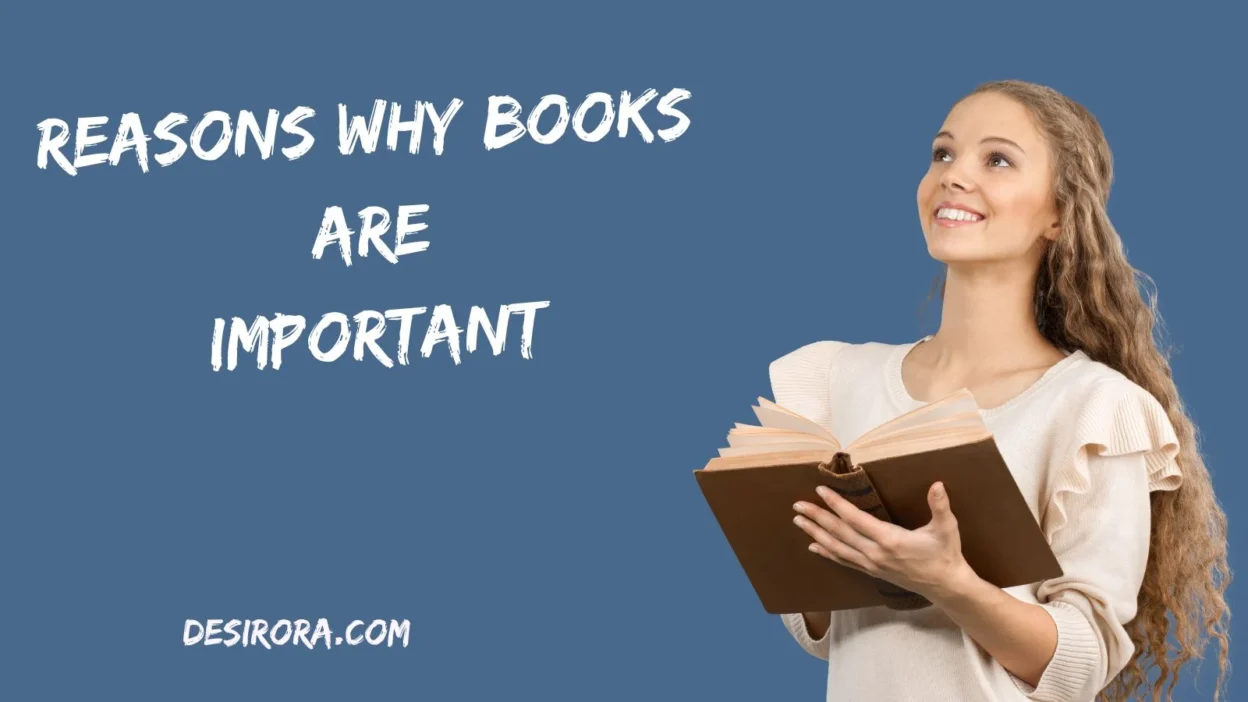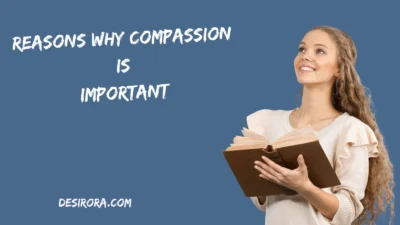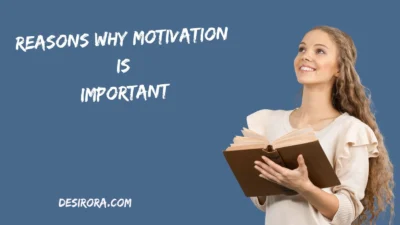Books remain timeless companions in an age of screens, social media, and instant gratification. But beyond nostalgia, they carry profound importance.
Let’s explore why books are important and how they enrich our lives in so many dimensions.
The Power of Knowledge & Understanding
Books are among humanity’s greatest tools for gathering knowledge and information. Through reading, we understand our world more deeply.
- A well-researched history book can paint a vivid picture of past societies, wars, revolutions, and how we arrived at our present.
- A treatise in science offers theories, evidence, and the process of inquiry.
- Philosophical works challenge assumptions, question purpose, and make you pause.
When you read on different topics, you expand knowledge not just in one domain, but in the ways you think. A broad base of knowledge helps you connect dots across disciplines—connecting science with ethics, history with economics, or literature with culture.
Example: Suppose you read a book on climate science and then a historical account of industrialization—combining both helps you understand not just what is changing, but why and how.
By reading books across domains, your outlook becomes more nuanced and your perspectives broaden. When someone cites a historical event, you have context. When someone uses a scientific claim, you can evaluate it. That kind of literacy helps societies survive misinformation.
Synonym mini-table
| Word | Synonyms / Related Terms |
| Knowledge | Awareness, understanding, insight |
| Expand | Broaden, enlarge, diversify |
| Information | Data, facts, details |
| Understanding | Comprehension, grasp, perception |
How Books Expand Our Horizons: History, Science, Philosophy, and Cultures
One of the greatest strengths of books is their ability to transport us into others’ worlds, times, and ideas.
- History books bring alive figures and times we will never experience directly.
- Science books introduce us to breakthroughs, experiments, and the language of discovery.
- Philosophy invites you to think about meaning, ethics, existence.
- Cultural books (fiction, memoirs, ethnographies) expose you to languages, norms, beliefs of other societies.
This exposure broadens your worldview and helps you become more knowledgeable about how different societies operate. You begin to see patterns, differences, and human commonalities.
Take Things Fall Apart by Chinua Achebe: it gives insights into Igbo society and colonial contact. Or Sapiens by Yuval Noah Harari: it spans history, biology, economics, and philosophy in one narrative. These works shift your thinking and spark curiosity.
When you combine reading across genres, you get a complex tapestry of thinking — bridging past, present, and future.
Mental Well-Being: Stress Reduction, Relaxation & Cognitive Boost
Reading isn’t just good for the mind—it’s good for mental health.
Reducing Stress & Therapeutic Relaxation
Imagine coming home from a long day and picking up a favorite novel or short story. A few minutes in, you’re transported away from daily stressors. That mental escape brings calmness and relief. Studies show that reading can reduce stress more than listening to music or taking a walk, because your mind actively engages with the story, creating a kind of meditative immersion.
Boosting Memory & Cognitive Function
Reading regularly acts as a workout for the brain. It stimulates neural connections, strengthens memory and improves comprehension. Over time, your ability to concentrate improves. You also train your mind to follow threads, remember characters, plot lines, ideas.
For example, someone reading historical fiction must remember who’s who, when, and where. That’s memory training in disguise.
Enhancing Cognitive Skills
- Critical thinking: Evaluating a plot’s logic, a character’s motivation, or a claim in a nonfiction book.
- Analytical skills: Breaking down arguments, comparing points of view.
- Attention span: Sustaining attention for pages, chapters, or entire books.
Because books require focused reading, they pull you away from quick dopamine hits (scrolling social media, watching clips) and into deeper engagement. Over time, that habit leads to more stable mental well-being.
Personal Growth, Empathy & Connection Through Stories
Books don’t only teach facts—they teach us humanness.
Empathy & Emotional Connection
When you read about a character’s struggles, joys, fears, you internally inhabit their world. You feel their pain or delight. This process fosters empathy—the ability to understand and share others’ emotions. Through fictional lives, we connect with lives we have never lived.
Stimulating Imagination & Creativity
Books unleash your imagination. They invite you to envision settings, characters, alternate worlds. As you picture scenes, your mind actively builds mental imagery, training creativity. That’s why many writers, innovators, artists cite reading as their bedrock.
Self-Awareness, Identity & Reflection
Reading prompts reflection. You might read a memoir and think, “How would I behave here?” or “Why do I disagree with this?” Books help you see parts of yourself, your biases, your desires. Over time, that fosters maturity and self-awareness.
Inspiring & Guiding
Sometimes a book saves you. A line in a poem or a quote in a biography can point you toward direction. For many, books are mentors—silent yet powerful guides.
“A room without books is like a body without a soul.” — Cicero
Books teach us that we are not alone, that our challenges have echoes in others’ lives, past and present.
Books as Tools for Communication, Language, and Expression
Strong thinkers become strong communicators—and books are crucial for that.
Vocabulary & Language Skills
Reading exposes you to words you might never speak in daily life. Over time, your vocabulary diversifies. You absorb idioms, varied sentence structures, rhetorical devices. When you speak or write later, those become tools you can draw from.
Writing & Expression
Reading good prose influences your writing style. You subconsciously learn how authors construct sentences, use metaphors, pace their narratives. That echoes in your own expression. Writers often say they learn more by reading than by writing alone.
Better Communication & Confidence
When you know more, you can communicate effectively. In conversations, you feel confident citing examples, offering analogies, constructing arguments. Over time, you become a more persuasive speaker and thoughtful listener.
Entertainment, Self-Awareness & Reflection
Not all reading has to be serious. One strong reason books are important is simple: they entertain.
- Reading an interesting novel gives delight, laughter, suspense, tears.
- Books offer escape—a break from routines and stressors.
- Because books don’t feed ads or algorithms, they let you experience stories at your own pace.
Reading also increases self-awareness. The stories you gravitate to, the themes that move you, reveal things about what you value, fear, aspire to. Reading becomes a mirror.
Books can bring fulfillment—a quiet joy in turning pages, discovering stories, lingering in worlds beyond your own. In that sense, they become lifelong friends.
Overcoming Barriers to Reading: Excuses & Misconceptions
Many people say they don’t have time or find reading boring. Let’s counter common excuses and show how to make books part of life.
Common excuses & responses
| Excuse | Response / Strategy |
| “I don’t have time.” | Start with 10 minutes daily. Use short stories or essays. |
| “Reading is expensive.” | Use libraries, eBooks, secondhand books, public domain works. |
| “I’m too tired.” | Read at low energy times—bedtime or lunchtime. |
| “I got bored before.” | Pick a genre you enjoy (mystery, travel, fantasy) to reengage. |
| “Digital distractions win.” | Put away devices, schedule reading time, make it ritual. |
Remember: reading doesn’t have to be grand. Even a few pages a day build up. The essence is consistency, not volume.
Types of Books & Their Unique Roles
Different genres serve different roles in our intellectual and emotional lives. Here are key categories:
- Novels & Short Stories: Imaginative narratives, character arcs, emotional journeys.
- Drama & Poetry: Condensed expression, symbolic images, rhythm.
- Autobiographies & Memoirs: Real lives, lessons, inner worlds.
- Travelogues & Cultural Writing: Places, experiences, cultural context.
- Historical / Nonfiction: Context, data, interpretation of events.
- Philosophy & Theory: Deep thinking, questioning assumptions.
- Self-help / How-to: Practical advice, frameworks, inspiration.
- Scientific / Technical: Concepts, experiments, innovation.
Each type enhances different skills: novels build empathy, nonfiction strengthens reasoning, poetry refines sensitivity, etc. A balanced reading diet is key.
Strategies to Make Reading a Habit
Turning reading into a regular practice requires a few habits and strategies:
- Set a goal: e.g. “Read 20 pages daily” or “1 book per month.”
- Schedule reading time: morning coffee, public transit, before bed.
- Always carry a book / eReader: A spare 5 minutes can become 5 pages.
- Keep a reading log / list: Track what you read, what you want to read.
- Join a book club / discussion group: Accountability plus deeper engagement.
- Mix genres: To avoid burnout, rotate fiction and nonfiction.
- Use bookmarks, sticky notes, margin notes: Engage actively.
- Revisit favorite passages: Rereading deepens connections.
Over time, reading becomes as natural as brushing your teeth.
Integrating Books into the Digital Era
We live in the digital age—but books still have a place, and they adapt.
- E-readers & apps: Kindle, iBooks, or pocket apps let you carry many books.
- Audiobooks: Audible, local audio libraries let you “read” while commuting.
- Digital libraries & open access: Many classics are free online.
- Hybrid reading: Alternate between physical and digital formats.
- Minimal distractions: Use tools like “do not disturb” while reading on device.
Books—physical or digital—offer control. You choose what you absorb without being pulled by algorithmic feeds or ads.
In fact, in a time when devices compete for attention, a book is a place of calm.
Measuring Impact: Real Life Examples
Here are a few stories and studies that show how books change lives:
- The Life-Changing Magic of Tidying Up inspired millions globally to simplify their homes and minds.
- Numerous CEOs and innovators cite reading as the habit that shaped their thinking (e.g. Bill Gates, Warren Buffett).
- In literacy programs, students who read regularly improve grades, test scores, and confidence.
- A study in the UK found just six minutes of reading reduced heart rate and stress palpably.
These examples illustrate how seemingly small habits compound into real growth—intellectual, emotional, professional.
Best Practices for Getting More from Reading
To maximize value, read actively rather than passively.
- Ask questions: What is the author’s point? Do I agree? Why?
- Take notes / annotate: Writing in margins anchors ideas.
- Summarize in your own words: Teach it back to yourself (or others).
- Discuss with others: Conversation spurs insight and memory.
- Apply what you read: Try to use ideas in real life—projects, conversations.
- Reread: A second reading often reveals nuance missed earlier.
- Read with purpose: Know whether you read for ideas, enjoyment, skills.
If reading becomes passive (skimming, multitasking), value diminishes. Stay mindful and present.
Frequently Asked Questions
What age should someone start reading books?
There’s no fixed age. Even picture books help babies develop language exposure. The habit of reading early sets a foundation.
Does reading fiction really build critical thinking?
Yes—fiction often presents ambiguous moral dilemmas, complex characters, and narrative conflicts. You must judge, infer, and analyze motivations.
How many books per year is reasonable?
It depends on your pace. Even 12 books a year (one per month) is meaningful. Some read 50 or 100. The goal is consistency, not comparison.
Are audiobooks as effective as reading text?
They activate different skills. You may lose visual memory of text, but your comprehension, vocabulary, and exposure still benefit. For some, audio is better than none.
Can I catch up on lost reading as an adult?
Absolutely. It’s never too late. Start small, stay patient, pick topics you love. Many adults report reading as life’s turning point.
Conclusion
Books matter—deeply. They are vessels of knowledge, bridges across cultures, medicine for the mind, and companions in solitude. From building understanding in history, science, philosophy, to fostering empathy, enhancing vocabulary, boosting memory, reducing stress, and promoting self-growth—books serve countless roles.
Don’t wait for an ideal time. Start with a short poem or favorite novel today. Let reading become your daily ritual, your quiet retreat, and your enduring source of insight.

Aldous Huxley was a visionary writer and philosopher whose works explored human nature, consciousness, and the future of society. His ideas continue to challenge minds and inspire generations.



